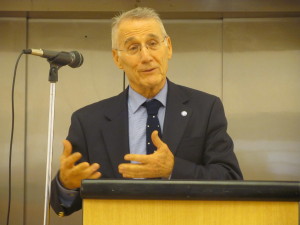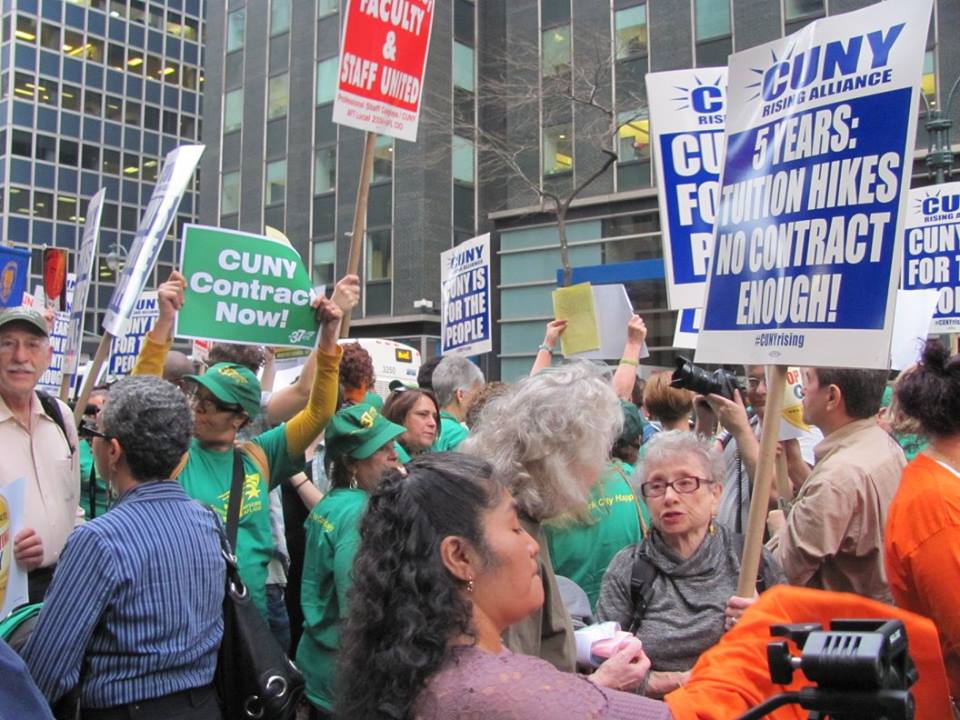
Loucas Tsilas, a former Greek ambassador and history professor at Queens College, reflects on his time in South Africa and what he saw as apartheid ended.
Former Greek ambassador Loucas Tsilas spoke at Godwin-Ternbach Museum in Klapper Hall on Nov. 12 to reflect on his time in South Africa during the end of apartheid.
The lecture was a part of the Short Course on South Africa series, which coincides with the Year of South Africa at Queens College. Tsilas’ talk highlighted the historical lessons from the dark period in the country’s history.
“It is so refreshing and thought-provoking to discuss these issues,” Tsilas said.
In South Africa, apartheid, which divided society by race, was implemented in 1948 and dismantled in the beginning of the 1990s after pressure from international countries and resistance from inside the country.
Tsilas, who currently teaches in the history department, was a diplomat for Greece with more than 35 years of experience. He was an ambassador not only to South Africa, but to the U.S. and the European Union. Since retiring from his position, he focused primarily on educational work.
From 1987 to 1990, Tsilas became the Greek ambassador to South Africa after presented with a choice to either go there or Poland. While Tsilas did not believe Poland would be a similar experience to South Africa, he noted that major historical changes occurred in the country after the fall of communism.
“At that time, I never thought Poland was going to be one of the countries [to undergo changes],” Tsilas said.
After Tsilas decided to go to South Africa, he was “fascinated” by what he initially saw in the environment. However, he realized there were serious issues hidden beneath the surface of society. Despite the difficulties of his new governmental role, he was confident he had a clear view of what to do.
“What do you do as an ambassador? You try to position yourself to speak for everyone,” Tsilas said.
While in South Africa, Tsilas met Nelson Mandela, a revered figure in the country’s history who passed away late last year.
At the time, Mandela was serving life imprisonment after being charged in the 1960s for attempting to overthrow the government. He was released in 1990 after negotiations with then-President Frederik Williem de Kierk.
Tsilas shared numerous stories about Mandela, whom he considered a friend, during his time there. Furthermore, he noted how meeting him was a unique experience that could not be described.
“Anything you have read, anything you have heard about Mandela is less than what you [really know],” Tsilas said.
Mandela served as president from 1994 to 1999.
Overall, Tsilas felt what happened in South Africa “transcended” the country as he admired the efforts of citizens to resist an oppressive system.
“The example of South Africa was the example of a country where people were able to defeat racism and discrimination,” Tsilas said.
Steven Renteria, a junior and history major, felt the event was great and informative. Furthermore, he hoped more QC students would enjoy talks such as Tsilas as it provides a unique perspective on historical issues.
“More QC students should involve themselves, especially if they are history majors, in these kinds of talks as they can really inspire your mind to do great things. You might read so much, but actually hearing a person and their experiences can navigate your mind to something else,” Renteria said.














